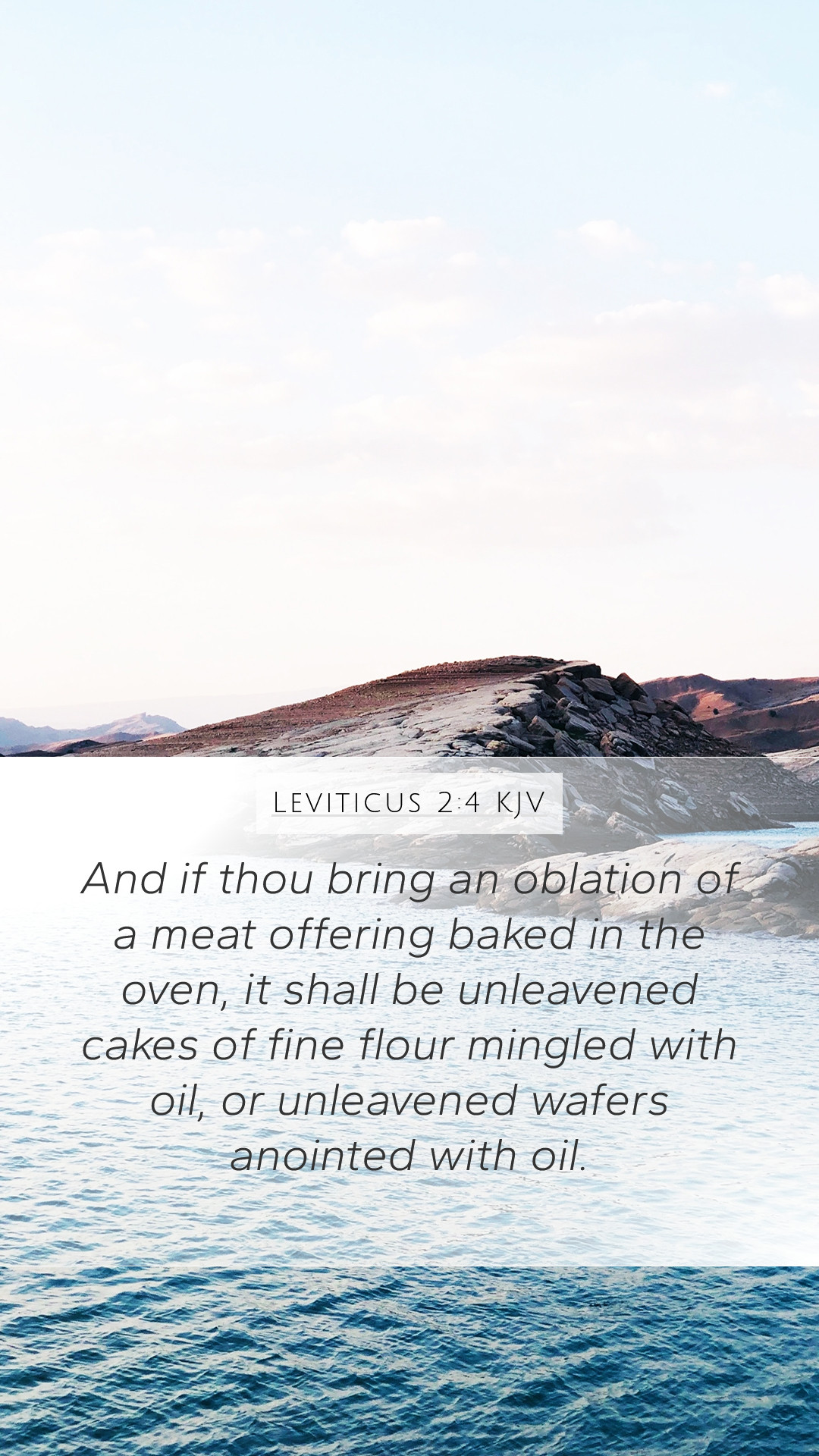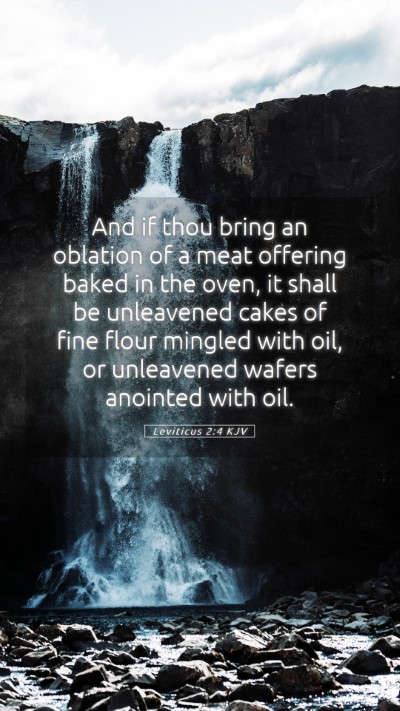Understanding Leviticus 2:4
Leviticus 2:4 states: "And if thou bring an oblation of a meat offering baken in the oven, it shall be unleavened cakes of fine flour mingled with oil, or unleavened wafers anointed with oil." This verse outlines specific instructions for the grain offerings made to God, emphasizing the importance of purity and the right ingredients.
This scripture holds great significance in understanding the broader themes of sacrifice, offering, and worship in the Old Testament. Below, we explore various interpretations and insights derived from traditional public domain commentaries.
Commentary Insights
-
Matthew Henry's Commentary
Henry emphasizes that the meat offering, though not a blood sacrifice, was an integral part of the worship process. It symbolizes gratitude and dedication to God. The unleavened nature of the offerings signifies purity, highlighting the importance of presenting untainted gifts to God, reflecting holiness and dedication.
-
Albert Barnes' Notes
Barnes elaborates on the significance of the term "meat offering," noting that it refers specifically to grain offerings rather than actual meat. This verse signifies the acceptance of simple offerings, provided they are done according to God’s specifications, which shows that God values the heart behind the offering more than the wealth or extravagance of the offering itself.
-
Adam Clarke's Commentary
Clarke discusses the process of preparation for the offerings, indicating that the offerings must be pure and well-prepared to be acceptable to God. He points out that the reference to oil signifies the presence of the Holy Spirit, underscoring the role of divine assistance in the act of worship and offering to God.
Theological Implications
The instruction to use unleavened bread in offerings demonstrates an overarching biblical theme concerning purity. Just as leaven often symbolizes sin, the use of unleavened cakes signifies a desire to approach God without any moral or spiritual blemish. This ties into the symbolism found throughout scripture about holiness and the requirements placed upon the worshipper.
Application of Leviticus 2:4
To apply the teaching of this verse to contemporary Christian life, believers are encouraged to consider the condition of their heart and the purity of their intentions when offering to God, whether it be in worship, prayer, or service. This understanding can inform how individuals engage in Bible study groups or online Bible study, emphasizing the attitudes of dedication and thankfulness.
Cross References
- Exodus 12:15 - Instructions regarding unleavened bread during Passover.
- Leviticus 2:1 - Additional details about the meat offering.
- Hebrews 13:15 - Encouragement to offer spiritual sacrifices to God.
Conclusion
In summary, Leviticus 2:4 serves as an instructive passage that highlights the significance of offerings made to God. It demonstrates the necessity for purity, reflects the heart's dedication, and emphasizes the ritual aspects of worship that were crucial to the Israelites. Studying this verse enriches one's understanding of Scripture and provides vital insights for practical application in a believer's life.


